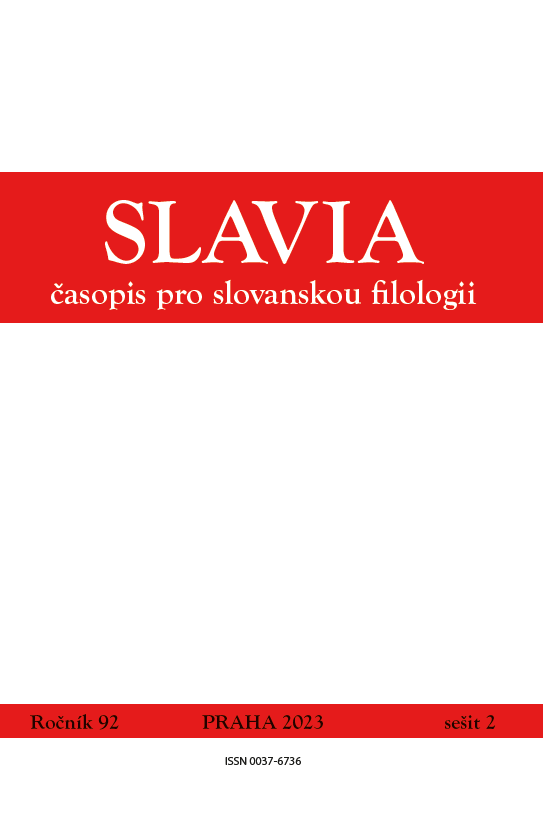Clausal Complements of Non-Agentive Visual Perception Verbs in Bulgarian and Russian
Clausal Complements of Non-Agentive Visual Perception Verbs in Bulgarian and Russian
Author(s): Maria Ovsjannikova, Hristina KukovaSubject(s): Language studies, Language and Literature Studies, Applied Linguistics, Computational linguistics, Eastern Slavic Languages, South Slavic Languages
Published by: AV ČR - Akademie věd České republiky - Slovanský ústav and Euroslavica
Keywords: Russian language; Bulgarian language; perception verbs; complements; complementizers; corpus linguistics; contrastive study;
Summary/Abstract: The paper examines clausal complementation with the Bulgarian and Russian non-agentive visual perception verbs виждам – видя / видеть – увидеть and забелязвам – забележа / замечать – заметить. Based on the data of a parallel corpus, the temporal and aspectual features of these verbs and their association with the choice of the complementizers как vs. че / что are analyzed. Our analysis reveals manifold aspects of interaction between verbal tense and aspectuality and the complementizer distribution. First, the constructions with как were found to be associated with a retrospective view of the situation of perception, while the constructions with че / что are more frequently used in contexts describing perception from the synchronic point of view. Second, the constructions with как appear to represent perception as more independent from the experiencer than constructions with че / что. We interpret these differences in light of the opposition between immediate perception and mental perception believed to аffect the choice between как and че / что.
Journal: Slavia - časopis pro slovanskou filologii
- Issue Year: XCII/2023
- Issue No: 2
- Page Range: 145-169
- Page Count: 25
- Language: English

